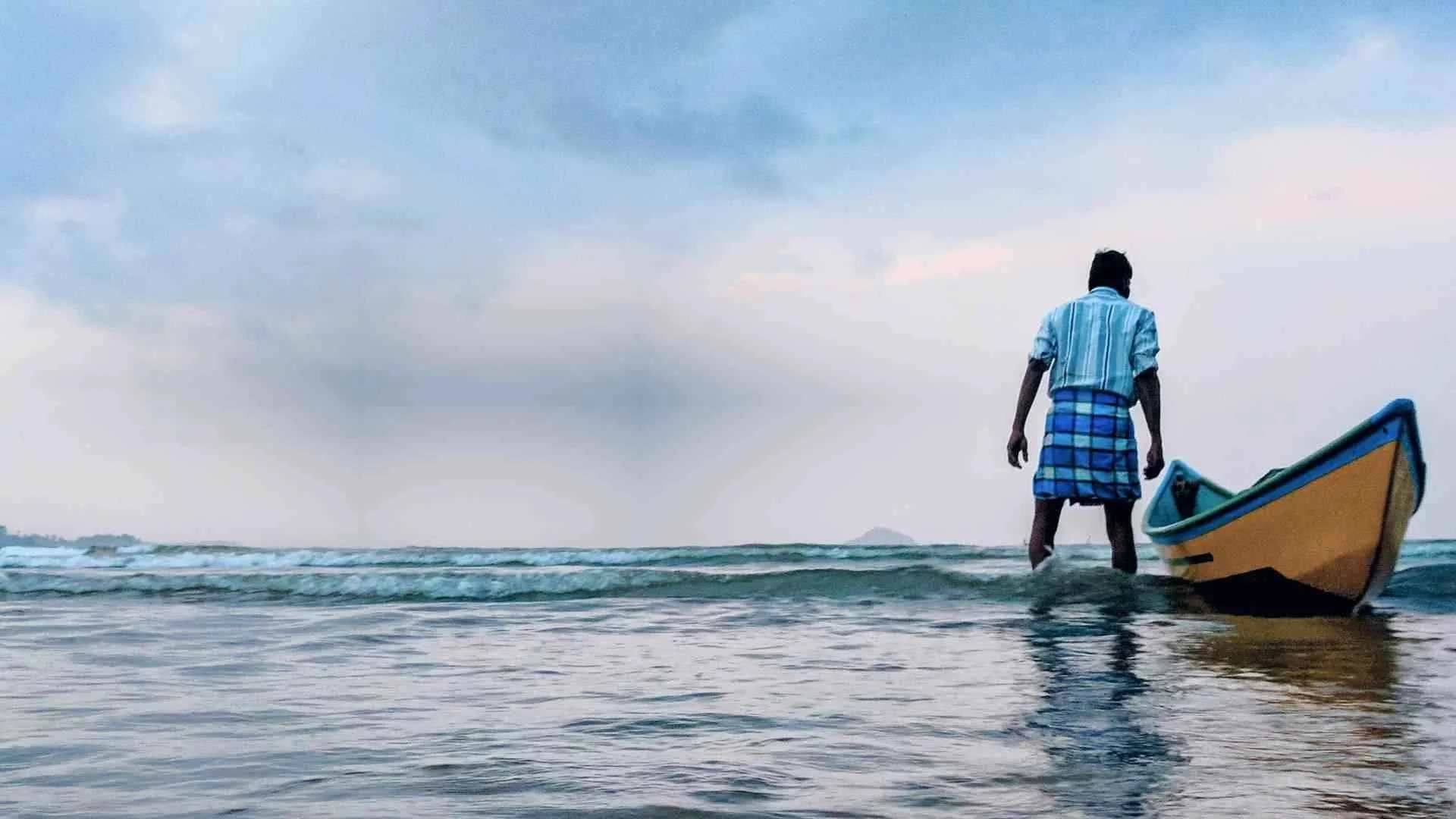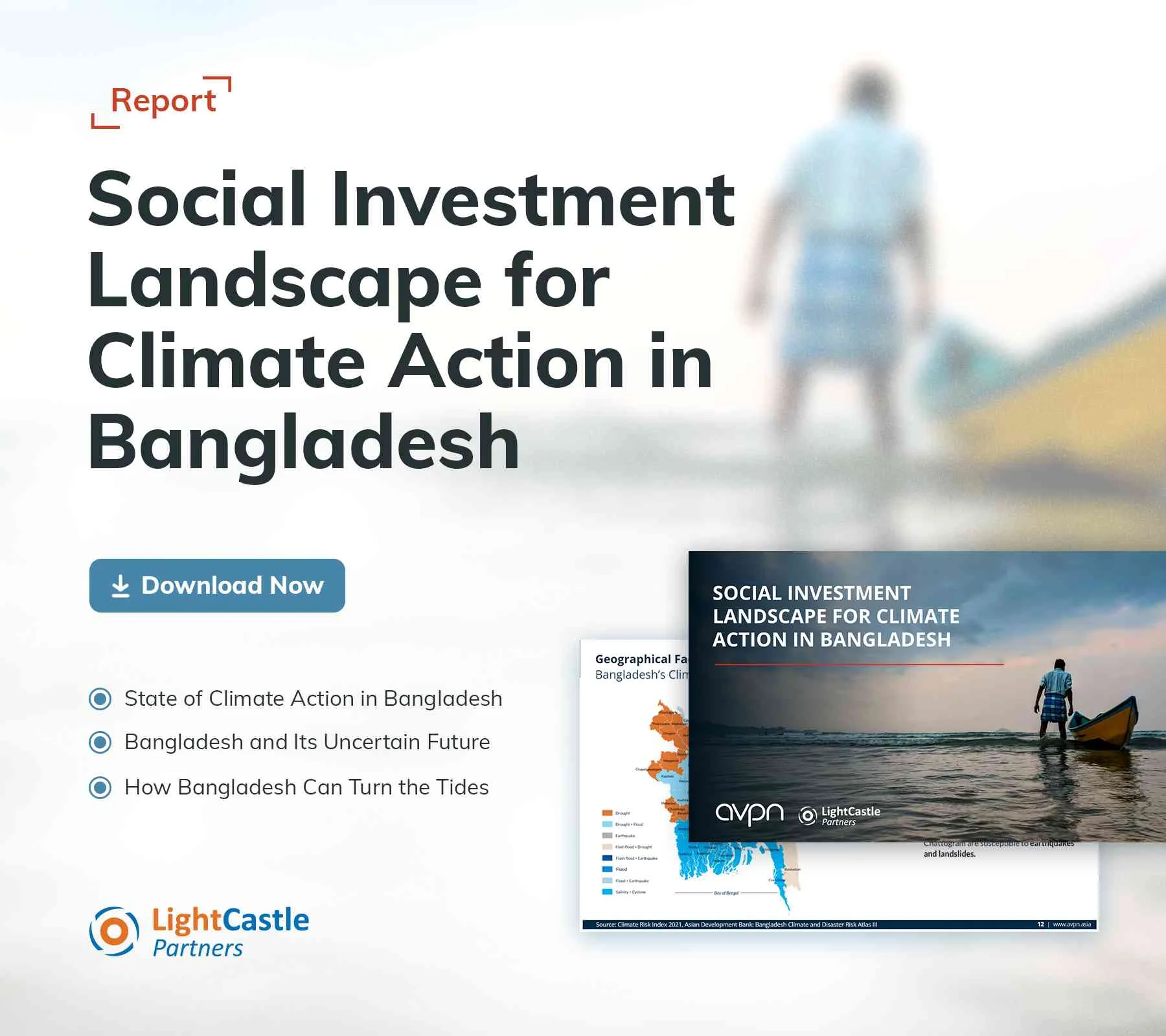GET IN TOUCH
- Please wait...

Despite contributing a meager 0.51% of the total greenhouse gas (GHG) emissions in the world, Bangladesh ranks 7th on the global climate risk index. Plagued by acute environmental afflictions, the nation ranks 9th globally in number of deaths triggered by climate-induced disasters. The country’s naturally flat and low-lying topography in conjunction with its high population density (1,119 people per s.q. km) and poverty levels augments its vulnerability to climate change and threatens its development trajectory. The ever-evolving climate regime and the unique geographical setting is exerting considerable stress on Bangladesh’s economy and the advancement towards sustainable development.
Over the years, Bangladesh has substantially advanced in enabling climate resilient sustainable development, through the formulation and subsequent implementation of required policies and frameworks. National level adaptive efforts include the Bangladesh Climate Change Strategy and Action Plan (BCCSAP, 2009), Bangladesh Delta Plan 2100, Mujib Climate Prosperity Plan and National Adaptation Plan 2023-2050 amongst others. However, without further accelerated and coordinated public-private interventions, the rapidly changing climate scene might trigger expected losses of 1.1% of GDP annually in a moderate scenario and up to 2% annual losses in extreme climate conditions.
The ‘Climate Action in Bangladesh’ study aims to build a comprehensive outlook on the current status quo of climate interventions in Bangladesh by diving into the: i) repercussions of climate change on livelihood outcomes; ii) active efforts towards decarbonization and transition to renewable energy; and iii) climate resilience efforts for green growth. Through this thorough analysis, the report aims to outline strategic recommendations, to guide the private sector’s sustainability efforts.
With the anticipated destabilizing increases in average annual temperature and rainfall, regions across Bangladesh will be more prone to climate-induced disasters. The underprivileged and vulnerable communities in these disaster prone areas are likely to experience significant repercussions to their standard of living, due to the multi-faceted implications of climate change.
Education: Natural disasters break down school infrastructure halting teaching cycles and leading to loss of education
Health: Extreme heat, high salinity and waterlogging can lead to heat strokes, respiratory diseases, dengue, reproductive complexities and mental health problems amongst others
Gender: Climate change implications are not gender neutral and disproportionately threaten female health, job security and empowerment
Livelihood: Vulnerable communities are likely to face loss of income with anticipated losses in livestock and crops and forced migrations
Carbon trading is still a largely nascent concept in the sub-continent with a lack of adequate active efforts. However, there is active public sector enthusiasm for implementation of carbon pricing mechanisms in Bangladesh, with the government targeting to introduce a 5% carbon tax by 2025.
Due to climate hazards and geographic factors, Bangladesh is losing 1.75% of its arable land every year. There are active adaptive processes to mitigate this food security threat through increased uptake of farm mechanization, high usage of bio fertilizers, adoption of renewable energy and contract farming. However, persistent barriers such as lack of access to finance and mechanization trainings, and market information asymmetries impede efforts.
Based on the findings of the study, possible trajectories that public-private interventions could take include:
 |
To learn more about the social investment landscape for climate action in Bangladesh
|
Our experts can help you solve your unique challenges
Stay up-to-date with our Thought Leadership and Insights